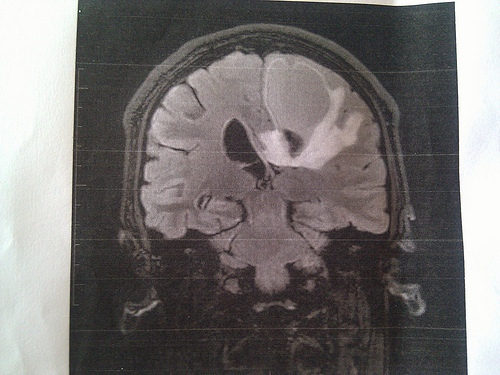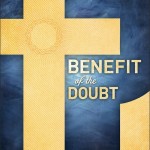We run our website the way we wished the whole internet worked: we provide high quality original content with no ads. We are funded solely by your direct support. Please consider supporting this project.

Why Did God Heal or Not?
In 1996 a 27-year-old man in my church named David was diagnosed with an inoperable brain cancer. The doctors decided to send David to the Mayo Clinic to receive some experimental treatments on the slim hope these might at least prolong his life. The night before David left, I and a dozen other people went over to his house to pray. For over two hours we engaged in fervent warfare prayer on his behalf, revolting in Jesus’s name against the cancer and anything in the spirit realm that might be involved in it.
Two days later I received an elated call from David. The doctors at the Mayo Clinic could not find any trace of cancer!
Of course, the mayo clinic staff insisted that David’s local doctors must have misread his brain scans, but his local doctor said this wasn’t possible. The mystery was never resolved, which was fine with us. We just praised God that he was set free from a life-threatening infirmity that ultimately is traceable back to Satan’s oppressive regime.
But we must be honest. As impressive as this event was, it’s possible nothing supernatural occurred. Despite their insistence to the contrary, David’s doctors may have misread his brain scans, and it’s possible David’s cancer went into “spontaneous remission.” But these seem very unlikely. And since I have good reason for believing Jesus is the son of God and that his followers are supposed to be able to affect things through the power of prayer, I feel justified calling David’s healing miracle.
Now, in the interest of full disclosure, and to illustrate how arbitrary life sometimes this, I’m compelled to add the sad fact that three years after his miraculous healing, David’s brain cancer returned. And this time he wasn’t healed.
I admit that this is theologically disturbing. But I don’t think this invalidates the miracle. For all we know, Lazarus may have died three years after Jesus raised him from the dead, perhaps from the very disease that killed him the first time (John 11:1–46). All healings this side of heaven are temporary signs of the coming age when all forms of infirmity will be permanently overcome. Until the kingdom comes in its fullness, we will all eventually die. The very last enemy that will be overcome is death (1 Cor 15). So David’s death doesn’t undermine the genuineness of the healing.
But it does illustrate how mysterious and seemingly arbitrary life is. Why was healing prayer effective in one instance but not in another, when we were revolting against the same illness in the same person? It’s impossible to say. Yet, as I said in yesterday’s post, it’s important we understand why we can’t understand this. It’s not because God’s will or character is so mysterious. It’s rather because we live in an unfathomably complex creation.
We don’t need to blame the arbitrariness of life on God. Nor do we need to try to explain away this arbitrariness by claiming some people have sufficient faith while others don’t. We simply need to respect the impenetrable ambiguity of an unfathomably complex creation and confess, as finite human beings, that “we don’t know.”
Image by mathrock via Flickr
Category: Q&A
Tags: Faith, Sickness, Spiritual Warfare, Warfare Worldview, healing
Topics: Faith & Doubt, The Problem of Evil
Related Reading

Trusting God for the Wrong Things
Chloe was a smart, personable, and devoted Christian student from South America whom I had the pleasure of teaching in several theology classes. In one meeting, Chloe confessed that, despite the confident appearance that she projected, she actually lived with a sense of guilt and had never felt like a good Christian. In fact, Chloe…

The Good News That’s Really “Good”
Often we view our relationship with God in terms of a legal contract. For instance, people often ask questions about salvation in this way. They see God as the judge, we are defendants, and salvation is about staying out of prison. With this perspective, questions about salvation and the Gospel—which means “good news”—are about the…

Lord Willing? Part 2
In Part 2 of Greg’s interview of Jessica Kelley about her book Lord Willing?, they discuss the theology that helped Jessica through her son Henry’s illness and death. You can find Part 1 of the interview here, and part 3 here.

That Weird Episode with the Pigs
In my opinion, the single strangest episode recounted in the Gospels is the account of Jesus’ encounter with a demonized man that ended with two thousand pigs drowning themselves in the Sea of Galilee (Mk 5:1-10//Mt 8:28-34; Lk 8:26-39). Some find it morally objectionable that this mass suicide was the result of Jesus allowing the…

Rachel Held Evans Interviews Greg on Benefit of the Doubt
We shared an interview that Frank Viola did with Greg yesterday, and we’re thrilled to share an interview that Rachel Held Evans posted today. Rachel is very familiar with the resistance and criticism that comes when dearly held beliefs are challenged. We feel like she is a kindred spirit in this regard. We hope you’ll…

The Nature of Human Rebellion
God placed Adam in the Garden and instructed him to “protect” it (Gen. 2:15). The word is often translated “till” or “keep,” implying that Adam’s main responsibility was to protect the pristine Garden from weeds. This is certainly a possible interpretation of this word, but in light of the cunning serpent that shows up in…
